Python vs. C++: Which to Learn and Where to Start
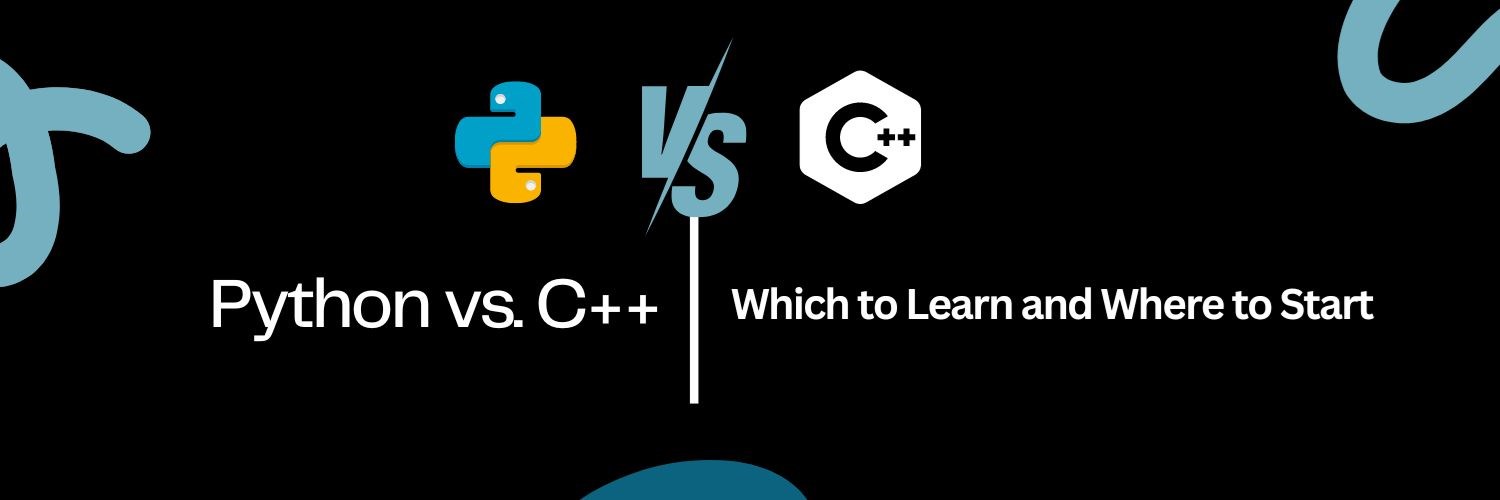
Learning a programming language is crucial for launching a career in today's technology-driven world. Programming languages are the foundation for creating software, applications, and websites, providing the necessary skills to design, build, and troubleshoot digital solutions. In a rapidly evolving job market, programming proficiency has become a sought-after skill across various industries. It empowers individuals to automate tasks, analyze data, and develop innovative solutions to complex problems.
As technology continues to shape the future workforce, having a solid understanding of programming languages opens up diverse career opportunities in software development, data science, and IT. Whether entering the world of technology or any field with a digital component, foundational programming knowledge is increasingly recognized as a key asset for career success.
Now, we shall discuss the overview of Python and C++, its advantages and disadvantages of Python and C++ and how to commence learning.
Python overview
Python is a versatile, high-level programming language renowned for its readability and simplicity. Created by Guido van Rossum and first released in 1991, Python has gained widespread popularity due to its clean syntax and ease of learning. It supports multiple programming paradigms, including object-oriented, imperative, and functional programming, making it suitable for various applications. Python's extensive standard library provides pre-built modules and packages, simplifying everyday programming tasks. Its dynamic typing and automatic memory management enhance developer productivity, allowing faster coding and easier maintenance.
Python finds applications in various domains, from web development and data science to artificial intelligence and automation. The active and supportive Python community and a vast ecosystem of third-party libraries contribute to the language's continued growth and relevance in the ever-evolving technology field.
Visit Sulekha to enroll in our Python course and embark on a learning and skill development journey. Explore comprehensive curriculum, live interactive sessions, and hands-on training guided by experienced instructors. Benefit from 24x7 service and support, ensuring a seamless learning experience. Visit Sulekha today to gain expertise in Python and boost your career prospects.
Advantages of Python
Here's a concise rundown of Python's advantages that make it a popular choice:
Readability and Simplicity
Clear and natural syntax: Code reads almost like English, making it easy to learn, understand, and maintain.
Minimal boilerplate code: Focus on logic rather than complex syntax, reducing errors and speeding up development.
Versatility
General-purpose language: Adaptable to various domains, including web development, data science, automation, machine learning, scientific computing, and more.
Productivity Boost
Interpreted language: No compilation step, allowing for faster testing and experimentation.
Dynamic typing: Data types are inferred at runtime, reducing code verbosity and enhancing flexibility.
Extensive standard library: Built-in modules for everyday tasks, saving time and effort.
Community and Ecosystem
Large and active community: Provides support, resources, and a wealth of third-party libraries for extended functionality.
Cross-Platform Compatibility
Runs seamlessly on major operating systems: Windows, macOS, Linux, and embedded systems.
Ideal for Beginners
Gentle learning curve: Well-suited for those new to programming, fostering confidence and motivation.
Specific Advantages in Key Domains
Data science and machine learning: Excels in data analysis, manipulation, and visualization with popular libraries like NumPy, Pandas, and scikit-learn.
Web development: Powerful frameworks like Django and Flask for building dynamic web applications efficiently.
Overall, Python's blend of readability, versatility, productivity-enhancing features, and a supportive community makes it a compelling choice for both beginners and experienced developers across various fields.
Disadvantages of Python:
While Python boasts numerous advantages, here are four areas where it might fall short in specific scenarios:
1. Performance: Interpreted nature can lead to slower execution than compiled languages like C++ or Java, especially for resource-intensive tasks.
2. Memory Usage: Dynamic typing and automatic garbage collection can increase memory consumption compared to statically typed languages.
3. Mobile Development: Limited native mobile development capabilities compared to languages like Swift or Kotlin, necessitating cross-platform frameworks with potential trade-offs.
4. Enterprise Adoption: While gaining traction, Python is less prevalent in some traditional enterprise environments, potentially requiring integration with established technologies.
It's important to remember that these disadvantages are primarily relevant to specific situations and don't diminish Python's overall value as a powerful and versatile programming language. Weighing these drawbacks against its numerous strengths helps determine whether Python is optimal for your needs and goals.
C++ Overview
C++ is a powerful, object-oriented programming language developed by Bjarne Stroustrup. It extends the capabilities of the C language with features like classes and objects, facilitating efficient and modular code development. Widely used in systems programming, game development, and high-performance applications, C++ is known for its performance and versatility. Its syntax enables low-level memory manipulation while providing high-level abstractions, making it a popular choice for various software development projects. So, those who intended to take up certification course, can join C++ training and certification course.
Advantages of C++
Portability: C++ allows the user to run the same program on different operating systems or interfaces at ease.
Object-oriented: C++ supports object-oriented programming, which includes concepts like classes, inheritance, polymorphism, data abstraction, and encapsulation.
Multi-paradigm: C++ is a multi-paradigm programming language that includes logic, structure, and procedure of the program.
Disadvantages of C++:
Complexity: C++ is a complex language that requires a deeper understanding of programming concepts, which can make it difficult to learn and use.
No garbage collection: C++ does not support garbage collection, which means that the developer has to manually manage memory, which can lead to memory leaks and other issues.
No built-in support for functional programming: C++ does not have built-in support for functional programming, which can make it difficult to write certain types of code.
In conclusion, Python and C++ are two powerful programming languages that have their own strengths and weaknesses. Choosing which one to learn first depends on your goals and preferences. Whether you choose Python or C++, both languages can help you achieve your goals and expand your skills as a programmer.
Find a course provider to learn Python
Java training | J2EE training | J2EE Jboss training | Apache JMeter trainingTake the next step towards your professional goals in Python
Don't hesitate to talk with our course advisor right now
Receive a call
Contact NowMake a call
+1-732-338-7323Take our FREE Skill Assessment Test to discover your strengths and earn a certificate upon completion.
Enroll for the next batch
Python Programming Hands-on Training with Job Placement
- Jan 29 2026
- Online
Python Programming Hands-on Training with Job Placement
- Jan 30 2026
- Online
Related blogs on Python to learn more
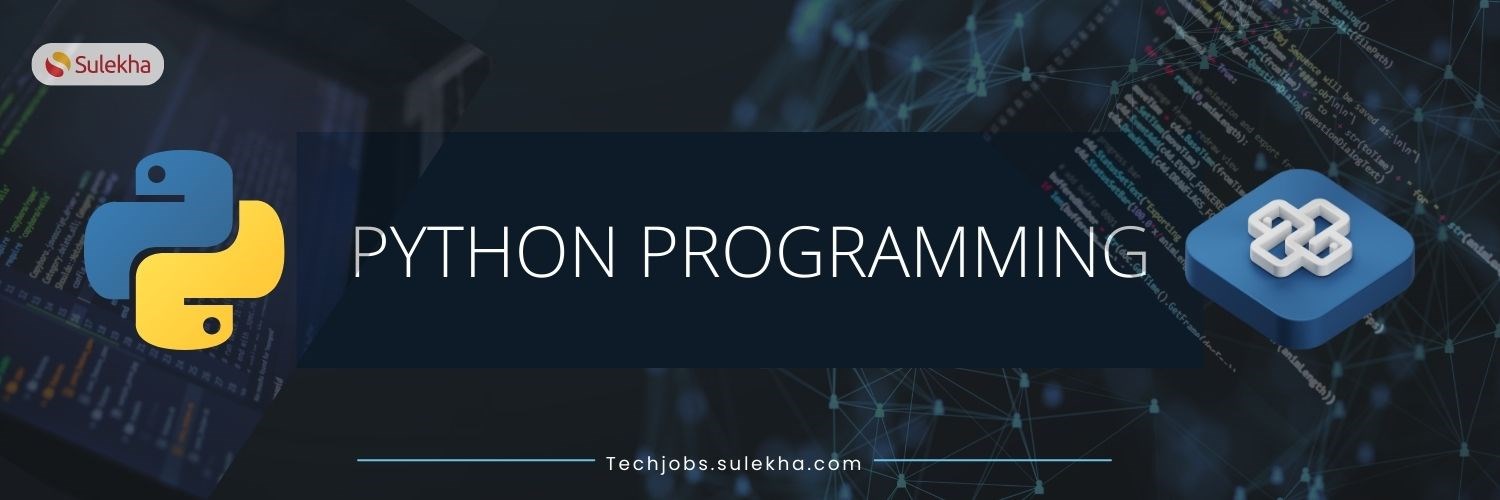
PYTHON PROGRAMMING
Discover Python, a versatile programming language ideal for web development, data analysis, and machine learning. Learn its easy syntax and extensive libraries to unlock a world of career opportunities in tech.
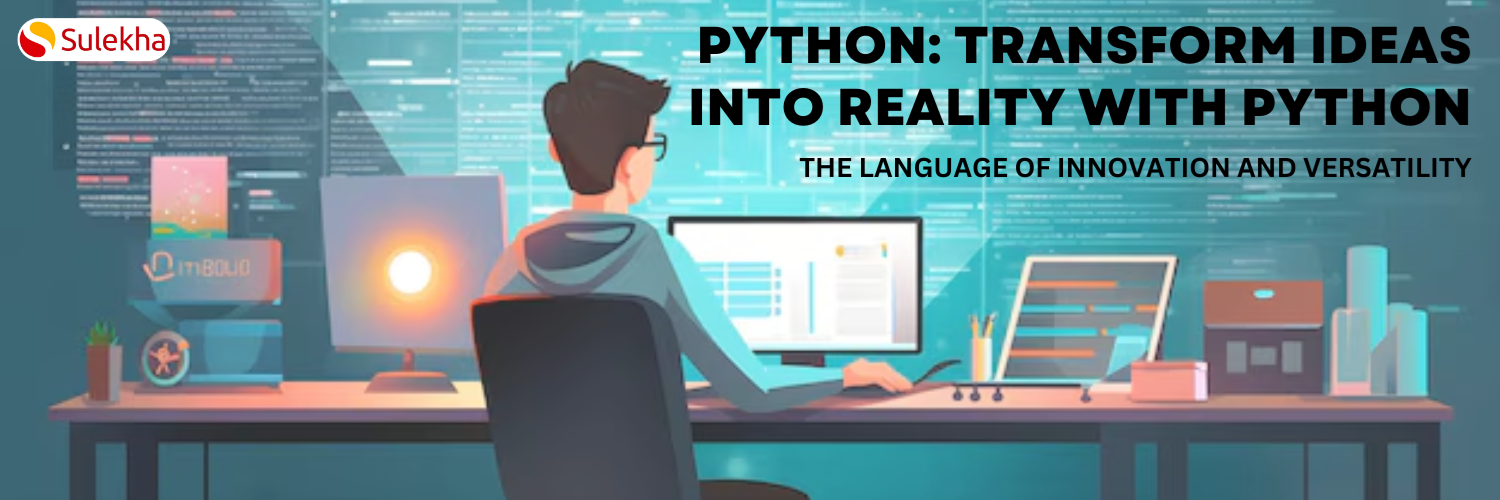
Python: The Language of Innovation and Versatility
"Master Python with Sulekha Tech Courses and boost your tech career. Find expert-led training in the USA and Canada for roles like Data Scientist and Machine Learning Engineer, and start your journey to innovation today."
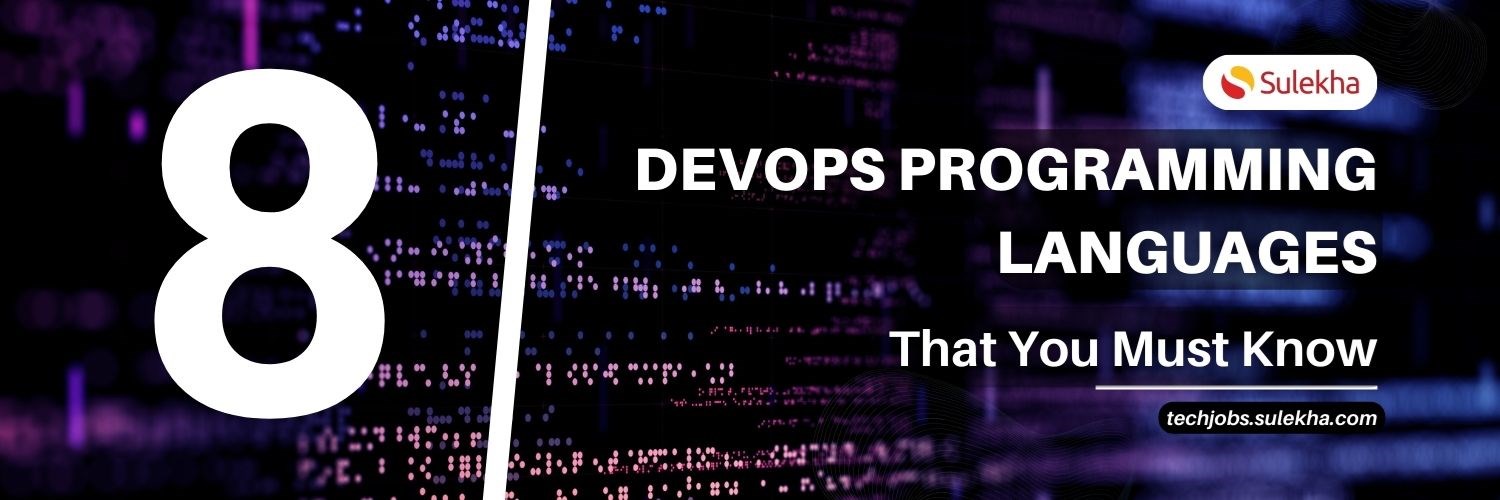
Top 8 DevOps Programming Languages That You Must Know
Top 8 DevOps programming languages that every DevOps engineer should know. From Python to PHP, learn the essential skills for automating and streamlining software delivery."
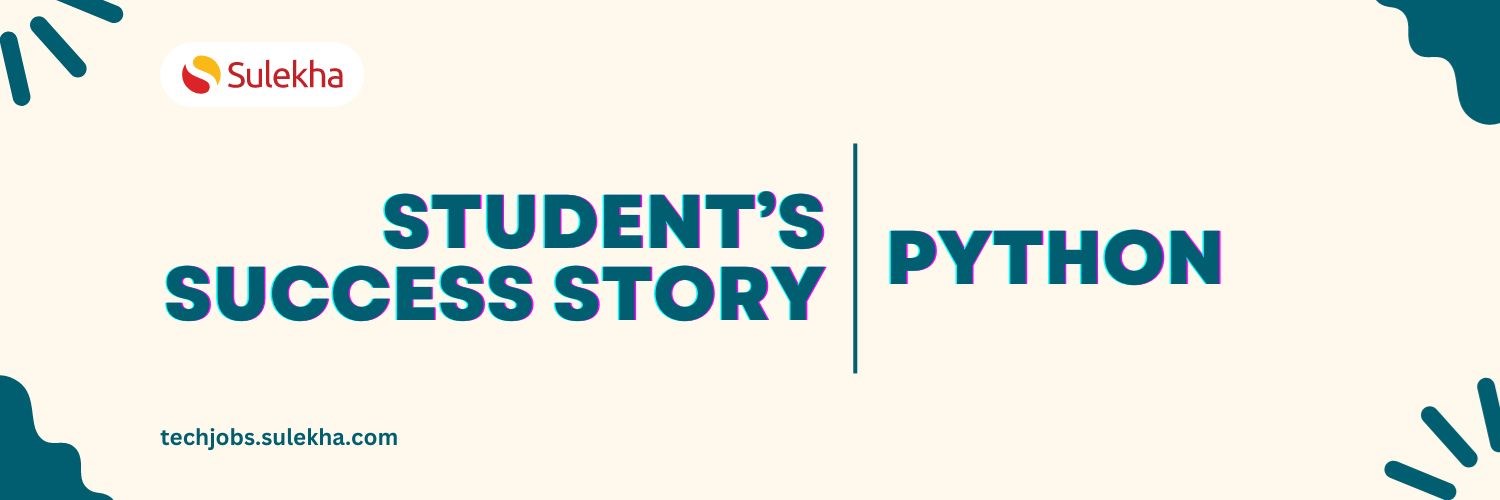
How did I successfully complete Python course?
Embark on a journey of student’s success story in Python programming, uncovering stories of resilience, growth, and achievement. Be inspired by their transformative experiences, unwavering dedication, and remarkable successes in mastering Python and
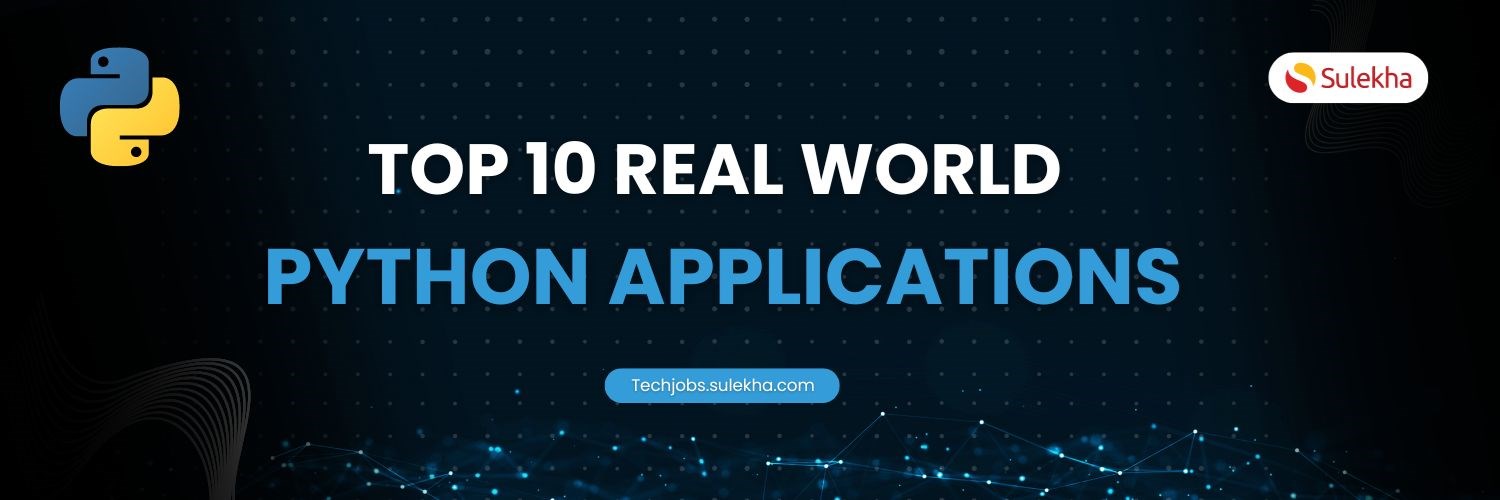
What are the top 10 Python Applications in the Real World?
Discover the top 10 Python applications transforming the real world across web development, audio and video Applications, business applications data science, game development, and more.
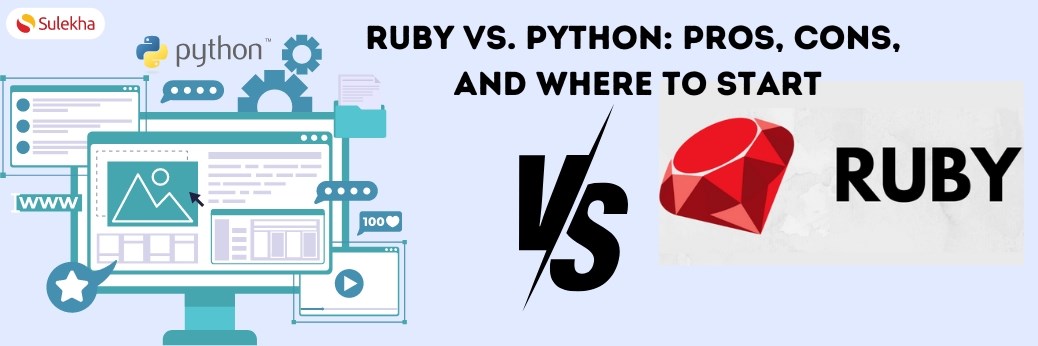
Ruby vs. Python: Pros, Cons, and Where to Start
Ruby vs. Python: Pros, Cons, and Where to Start Learning a programming language is helpful as it opens up numerous career prospects in the ever-growing technology field. Whether it is software development, web development, data science, or artificia
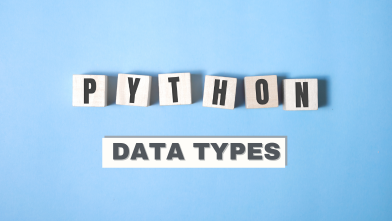
Data Types in Python for Data Science Applications
Python is a multipurpose programming language that finds applications across various domains. Its simplicity and flexibility make it a popular choice for web development, where frameworks like Django and Flask enable the creation of dynamic websites.
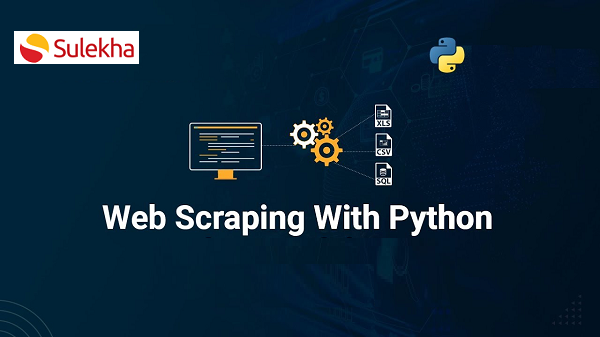
How to Build a Data Web Scraper Tool with Python
Web scraping involves processes to extract data from websites. This process is often performed using software that can simulate a user's actions on a website.
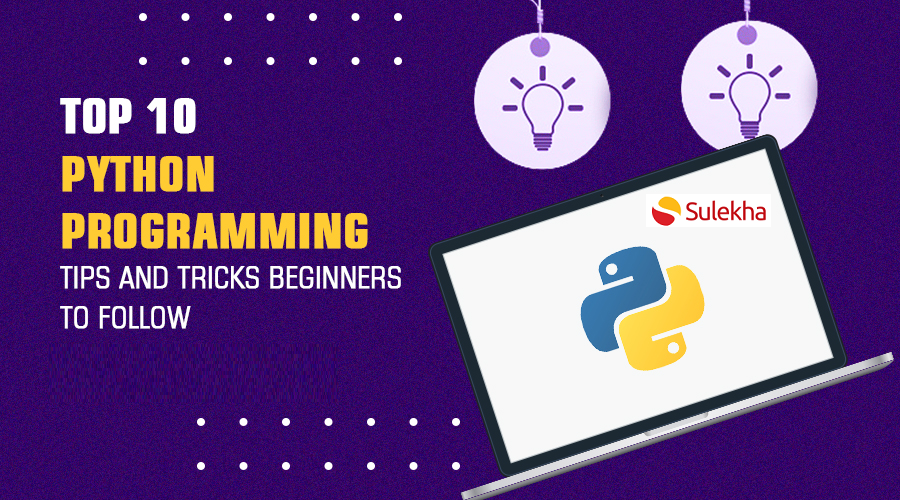
10 Python Tips and Tricks for Efficient Coding
Introduction
Latest blogs on technology to explore

Drug Safety & Pharmacovigilance: Your 2026 Career Passport to a Booming Healthcare Industry!
Why This Course Is the Hottest Ticket for Science Grads & Healthcare Pros (No Lab Coat Required!)" The Exploding Demand for Drug Safety Experts "Did you know? The global pharmacovigilance market is set to hit $12.5B by 2026 (Grand View Research, 202

Launch Your Tech Career: Why Mastering AWS Foundation is Your Golden Ticket in 2026
There’s one skill that can open all those doors — Amazon Web Services (AWS) Foundation

Data Science in 2026: The Hottest Skill of the Decade (And How Sulekha IT Services Helps You Master It!)
Data Science: The Career that’s everywhere—and Nowhere Near Slowing Down "From Netflix recommendations to self-driving cars, data science is the secret sauce behind the tech you use every day. And here’s the kicker: The U.S. alone will have 11.5 mill

Salesforce Admin in 2026: The Career Goldmine You Didn’t Know You Needed (And How to Break In!)
The Salesforce Boom: Why Admins Are in Crazy Demand "Did you know? Salesforce is the 1 CRM platform worldwide, used by 150,000+ companies—including giants like Amazon, Coca-Cola, and Spotify (Salesforce, 2025). And here’s the kicker: Every single one

Python Power: Why 2026 Belongs to Coders Who Think in Python
If the past decade was about learning to code, the next one is about coding smarter. And in 2026, the smartest move for any IT enthusiast is learning Python — the language that powers AI models, automates the web, and drives data decisions across ind

The Tableau Revolution of 2025
"In a world drowning in data, companies aren’t just looking for analysts—they’re hunting for storytellers who can turn numbers into decisions. Enter Tableau, the #1 data visualization tool used by 86% of Fortune 500 companies (Tableau, 2024). Whether

From Student to AI Pro: What Does Prompt Engineering Entail and How Do You Start?
Explore the growing field of prompt engineering, a vital skill for AI enthusiasts. Learn how to craft optimized prompts for tools like ChatGPT and Gemini, and discover the career opportunities and skills needed to succeed in this fast-evolving indust

How Security Classification Guides Strengthen Data Protection in Modern Cybersecurity
A Security Classification Guide (SCG) defines data protection standards, ensuring sensitive information is handled securely across all levels. By outlining confidentiality, access controls, and declassification procedures, SCGs strengthen cybersecuri

Artificial Intelligence – A Growing Field of Study for Modern Learners
Artificial Intelligence is becoming a top study choice due to high job demand and future scope. This blog explains key subjects, career opportunities, and a simple AI study roadmap to help beginners start learning and build a strong career in the AI

Java in 2026: Why This ‘Old’ Language Is Still Your Golden Ticket to a Tech Career (And Where to Learn It!
Think Java is old news? Think again! 90% of Fortune 500 companies (yes, including Google, Amazon, and Netflix) run on Java (Oracle, 2025). From Android apps to banking systems, Java is the backbone of tech—and Sulekha IT Services is your fast track t